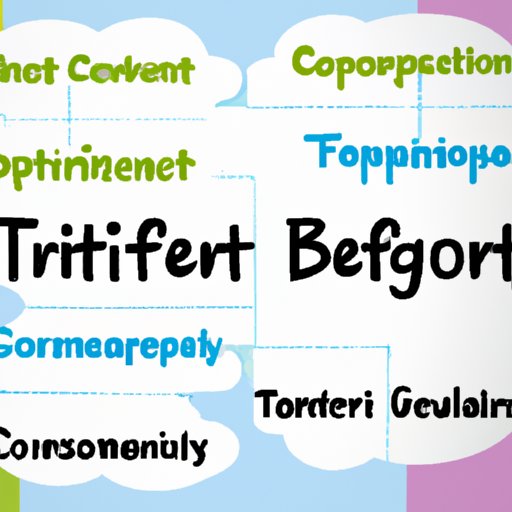Introduction
Information technology (IT) is a rapidly growing field that encompasses a wide range of job roles and responsibilities. From software engineers and database administrators to network security analysts and web developers, the IT sector offers a variety of opportunities for those looking to pursue a career in the tech industry. In this article, we will explore what an IT job entails, the education and skills required for IT positions, and the benefits of pursuing a career in IT.
Breaking Down the Basics of an IT Job
IT jobs can vary greatly depending on the position, but all IT professionals are responsible for managing and maintaining computer systems, networks, and software applications. To be successful in an IT role, individuals must possess a high level of technical knowledge, as well as strong problem-solving and communication skills. It is also important for IT professionals to stay up-to-date on the latest technologies and trends in the industry.
Education and Skills Required for an IT Job
The educational requirements for IT positions vary depending on the specific role. For entry-level positions, many employers require applicants to have at least a bachelor’s degree in computer science or a related field. However, some employers may accept candidates with only an associate’s degree or relevant work experience. Additionally, many IT professionals choose to pursue certifications such as CompTIA A+, Microsoft Certified Solutions Expert (MCSE), or Cisco Certified Network Associate (CCNA).
In addition to education and certifications, there are certain skills and qualities that are essential for success in an IT role. These include strong analytical and problem-solving skills, the ability to think critically and logically, excellent communication skills, and the ability to work independently and in teams. IT professionals must also be comfortable working with technology and be able to adapt quickly to new technologies.
Daily Tasks of an IT Professional
The daily tasks of an IT professional depend largely on the specific role they occupy. However, some common tasks include: troubleshooting hardware and software issues, configuring and maintaining computer systems and networks, installing and upgrading software applications, monitoring system performance, and providing user support. IT professionals must also be able to identify potential security threats and implement measures to protect the system from such threats.

Benefits of an IT Career
Pursuing a career in IT can offer a number of benefits, both professionally and financially. According to the Bureau of Labor Statistics, IT jobs are expected to grow 12% between 2018 and 2028, much faster than the average for all other occupations. This means that there will be plenty of opportunities for those looking to break into the tech industry.
In-Demand IT Jobs
One of the biggest benefits of an IT career is the wide range of job opportunities available. Some of the most in-demand IT jobs include software developer, computer systems analyst, network administrator, information security analyst, and database administrator. Each of these positions requires a different set of skills and expertise, so it is important to do your research before deciding which position is right for you.
Salaries of Different IT Positions
Another benefit of an IT career is the potential for high salaries. According to PayScale, the median salary for a software developer is $72,000, while the median salary for a computer systems analyst is $64,000. Network administrators can earn a median salary of $61,000, while information security analysts can earn a median salary of $90,000. Database administrators can earn a median salary of $77,000.
Conclusion
An IT career can be an exciting and rewarding way to make a living. With the right education and skills, IT professionals can enjoy a wide range of job opportunities and the potential for high salaries. While the educational and skill requirements may vary depending on the specific role, all IT professionals must be comfortable working with technology and possess strong problem-solving and communication skills. Ultimately, an IT career can be a great choice for those looking to break into the tech industry.
(Note: Is this article not meeting your expectations? Do you have knowledge or insights to share? Unlock new opportunities and expand your reach by joining our authors team. Click Registration to join us and share your expertise with our readers.)
